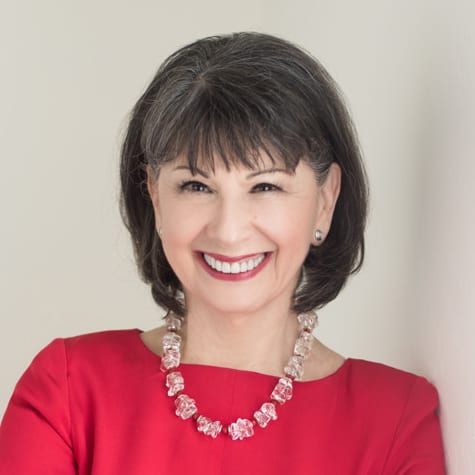Do Women’s Gains Make Women’s History Month Ho Hum?
I’m finding Women’s History Month this year greeted with yawns. That could mean women and women’s contributions are becoming everywhere recognized as integral to political and social history. If so, it’s not yet a publicly acknowledged fact.
No surprise there.
History has been defined through male lenses and written by male hands. Almost nobody, male or female, ever thought of Women’s History Anything before the 1970’s. Officially, it’s been in existence since 1978 and started on the left coast (as Women’s History Week) in Sonoma County CA. Now it sounds just nice and ordinary. You can even buy Women’s History Month greeting cards.
So it’s hard for many to fathom that the inception of Women’s History Month marked a revolutionary shift in thinking about whose actions are worth recording. An interesting overview is here, and Louise Bernikow’s “Our Story” articles tell me interesting snippets I don’t find elsewhere; your children probably won’t find them in their textbooks either because few history courses even today have caught up with the stunning progress women have made into leadership and influential roles during the past decade.
The origins of International Women’s Day, which was March 8, predate Women’s History Month by seven decades but have now been incorporated into the month’s events. It began in the progressive political movement to demand better working conditions for women at the turn of the 20th Century, a time of rapid industrialization and rapid social change.
My favorite t-shirt is one that reads “Well behaved women rarely make history.”
But once history is made, it just seems so normal. Now the United States has had a female Speaker of the House of Representatives and a woman candidate for President nearly won the Democratic party’s nomination last year. Indeed, when asked my grandson, age 11 at the time, if he would vote for a woman for president, he responded “Yeaaah” in that drawn out way that made it sound as though I had three heads to ask such a dumb question.
There’s a whole raft of what I call the feminist echo going on right now–as all of us aging second wave feminists are having a combination of post menopausal zest and a realization that it’s time to take another swing at getting some things done before it’s too late for us to do anything. That’s why there are renewed ratification efforts in states that failed to pass the Equal Rights Amendment during the 1970’s, and a whole slew of books, conferences, and oral histories under development, including a conference to reprise the historic National Women’s Conference in Houston of 30 years ago. Now with Barack Obama as president, the U.S.might even enter the 21st century by ratifying the Convention on the Elimination of all Forms of Discrimination Against Women. Over 90% of the nations on earth have ratified CEDAW; we stand in bad company with countries like the Sudan that have not yet signed on. And during the last two weeks, over at the United Nations, plans were being laid for a Fifth World Conference on women, or Beijing + 15. Not that you would know it from the lack of media coverage on the topic.
 Speaking of media, it should be noted that Eleanor Roosevelt was more or less the first blogger. She wrote “My Day”, a 500-word syndicated column six days a week from 1935 until her death in 1962 in order to influence policy through a medium accessible to a woman. “Without equality,” she said, “there can be no democracy.” And although she was more noted for her work to advance racial equality, she included women in her concerns: “The battle for the individual rights of women is one of long standing and none of us should countenance anything which undermines it.”
Speaking of media, it should be noted that Eleanor Roosevelt was more or less the first blogger. She wrote “My Day”, a 500-word syndicated column six days a week from 1935 until her death in 1962 in order to influence policy through a medium accessible to a woman. “Without equality,” she said, “there can be no democracy.” And although she was more noted for her work to advance racial equality, she included women in her concerns: “The battle for the individual rights of women is one of long standing and none of us should countenance anything which undermines it.”
 To that point, the inimitable gravel-voiced former congresswoman and serial starter of organizations to advance women, Bella Abzug, once said, “Our struggle today is not to have a female Einstein get appointed as an assistant professor. It is for a woman schlemiel to get as quickly promoted as a male schlemiel.”
To that point, the inimitable gravel-voiced former congresswoman and serial starter of organizations to advance women, Bella Abzug, once said, “Our struggle today is not to have a female Einstein get appointed as an assistant professor. It is for a woman schlemiel to get as quickly promoted as a male schlemiel.”
In the same way, we’ll really know we have social and political gender parity when women’s visibility in the telling of history, as well as the making of it, will be, well, just normal.

GLORIA FELDT is the New York Times bestselling author of several books including No Excuses: 9 Ways Women Can Change How We Think About Power, a sought-after speaker and frequent contributor to major news outlets, and the Co-Founder and President of Take The Lead. People has called her “the voice of experience,” and among the many honors she has been given, Vanity Fair called her one of America’s “Top 200 Women Legends, Leaders, and Trailblazers,” and Glamour chose her as a “Woman of the Year.”
As co-founder and president of Take The Lead, a leading women’s leadership nonprofit, her mission is to achieve gender parity by 2025 through innovative training programs, workshops, a groundbreaking 50 Women Can Change The World immersive, online courses, a free weekly newsletter, and events including a monthly Virtual Happy Hour program and a Take The Lead Day symposium that reached over 400,000 women globally in 2017.
